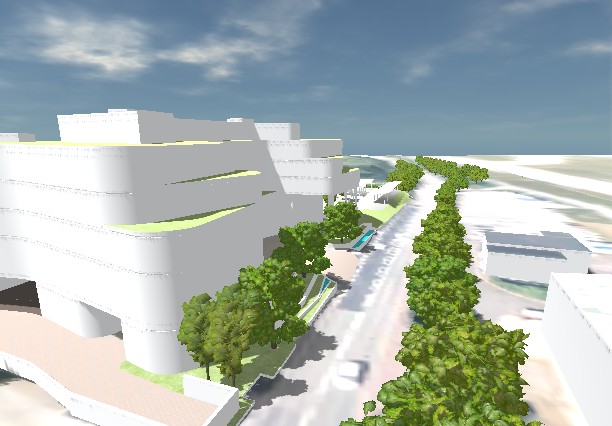The Jersey Planning Committee is set to make significant decisions today regarding two proposed hotel developments, one in Strive, St Peter, and the other in Milbrook, St Helier. These decisions come at a crucial time, as the tourism sector grapples with a notable decline in visitor numbers, highlighting the pressing need for new investments in the industry.
In September, the Jersey Government announced a new “joint approach” between the Economy and Planning departments. This initiative aims to ensure that the planning system supports sustainable economic growth and that decisions are informed by robust economic insights. The Ministerial foreword emphasized that this change is intended to boost confidence in the planning process.
The Planning Committee will evaluate two distinct hotel applications: one focusing on sports and conventions in Strive, while the other in Milbrook aims to promote the arts, yoga, and cookery. According to recommendations from planning officers, the first application for Strive has been advised for refusal, while the second, in Milbrook, has received a favourable recommendation.
This marks the first significant test of the new joint economic benefit and planning approach. The reasons behind the recommendations will be closely examined by the committee, as they seek to understand how effectively the new policy has been implemented and whether it has influenced the decisions made today.
The timing of these decisions is particularly critical. Recent tourism figures indicate a significant decline, with a reported drop of **17%** in visits for the year 2025 compared to the same period in 2024. August, typically the peak month for tourism, saw **20%** fewer visitors than the previous year. While the new ferry contract has contributed to this downturn, the overall decline remains a significant concern for the tourism sector, which is urging the Planning Committee to allow for new investments that could stimulate growth.
The proposals for the two hotels aim to generate “year-round” business, which has been a long-standing goal for the island. Such developments are essential for sustaining transport links and supporting the local economy. While both hotel applications seek to reinvigorate a struggling tourism industry, the contrasting recommendations for Strive and Milbrook highlight the complexity of balancing economic needs with planning regulations.
The outcome of the Strive application is likely to be particularly telling. It will not only reflect the committee’s willingness to support new development but will also send a message to the tourism sector about the viability of future investments. As Jersey faces challenges in its tourism landscape, practical support from the Planning Committee is more crucial than ever.
The decisions made today will have long-term implications for the island’s economy and its ability to attract visitors, making it a pivotal moment for Jersey’s tourism sector.







